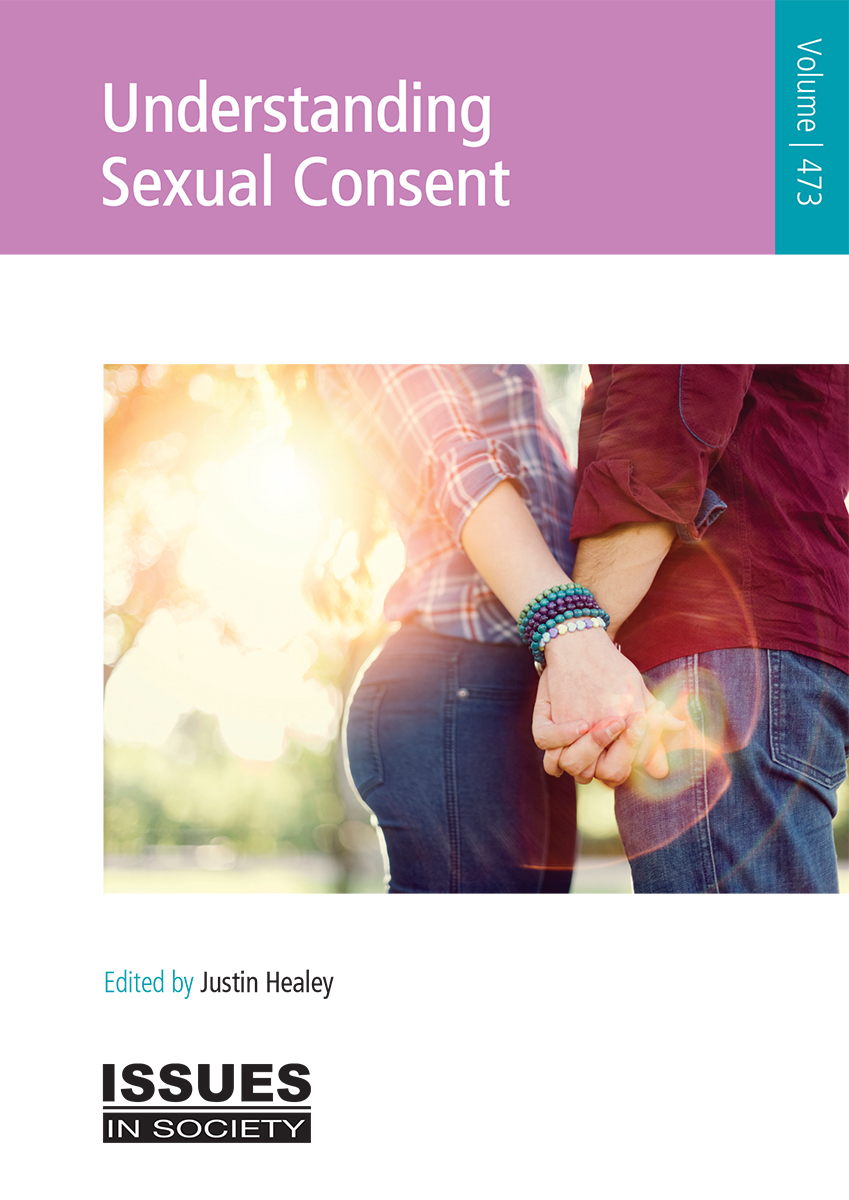Sexual culture is a fascinating and complex topic that touches every corner of our lives. It’s not just about biology or anatomy; it’s about understanding how society, relationships, and personal experiences shape our views on sexuality. Whether you’re exploring your own identity, navigating relationships, or simply curious about the broader context of sexual culture, this guide will provide you with the tools and insights you need. So, buckle up and let’s dive into this journey together!
In today’s world, where information is just a click away, it’s easy to get lost in a sea of conflicting opinions and half-truths. But here’s the thing: understanding sex goes beyond the basics. It’s about unpacking the layers of societal norms, cultural influences, and personal values that define how we perceive and experience sexuality. This guide aims to shed light on these aspects while respecting your individual journey.
Let’s be real, folks. Talking about sex can sometimes feel awkward or taboo, but it’s an essential part of human life. By the time you finish reading this, you’ll have a clearer understanding of the complexities of sexual culture and how it impacts our daily lives. Ready to dive in? Let’s go!
Read also:Darius Ruckers Wife A Deep Dive Into Her Life Achievements And Influence
Why Understanding Sex Matters
Understanding sex isn’t just about knowing the mechanics. It’s about recognizing its role in shaping relationships, identities, and even societal structures. From a young age, we’re bombarded with messages about what’s “normal” or “acceptable,” but these definitions vary widely across cultures and communities. This section will explore why understanding sex is crucial for personal growth and societal progress.
First off, let’s talk about the elephant in the room: stigma. Many people still shy away from discussing sex openly, which can lead to misunderstandings and even harm. By fostering a culture of openness and education, we can break down barriers and promote healthier attitudes toward sexuality. Whether you’re a parent, educator, or just someone curious about the topic, understanding sex empowers you to make informed decisions.
Here’s the kicker: when we fail to understand sex, we risk perpetuating harmful stereotypes and misinformation. For instance, did you know that the average person still holds misconceptions about consent, gender roles, and sexual health? These misconceptions can have real-world consequences, from strained relationships to public health crises. By arming yourself with knowledge, you become part of the solution rather than the problem.
The Evolution of Sexual Culture
Sexual culture hasn’t always looked the way it does today. Throughout history, societies have had vastly different attitudes toward sexuality, influenced by factors like religion, politics, and technology. Understanding the evolution of sexual culture helps us appreciate how far we’ve come—and how much further we have to go.
Historical Perspectives on Sexuality
From ancient Greece’s acceptance of same-sex relationships to the Victorian era’s puritanical views, history is full of examples that highlight the fluidity of sexual norms. For instance, in some cultures, polygamy was once the norm, while in others, arranged marriages were the standard. These historical contexts remind us that what we consider “normal” today is often a product of specific cultural and historical conditions.
Let’s take a look at some key historical milestones:
Read also:What Did Aubreigh Wyatt Do To Herself Unveiling The Truth Behind The Viral Story
- Ancient Civilizations: Many early societies celebrated sexuality as a natural and sacred part of life.
- Middle Ages: The rise of organized religion brought stricter rules around sexual behavior, often linking it to morality.
- 20th Century: The sexual revolution of the 1960s marked a turning point in Western attitudes toward sex, emphasizing freedom and self-expression.
These shifts in perspective highlight the dynamic nature of sexual culture and its ability to adapt over time.
Modern-Day Sexual Culture
Fast forward to today, and we find ourselves in a world where sexual culture is more diverse and complex than ever before. Social media, globalization, and advancements in technology have all played a role in shaping how we think about and express our sexuality. But what does this mean for us as individuals?
The Role of Technology
Technology has revolutionized the way we approach sex. Apps, online dating platforms, and even virtual reality have changed the landscape of relationships and intimacy. While these innovations offer exciting possibilities, they also raise important questions about privacy, consent, and emotional connection.
Consider this: a recent study found that over 80% of young adults use dating apps, and nearly half of them report feeling more confident in their relationships as a result. However, the same study also highlighted concerns about the impact of technology on genuine human connection. Balancing convenience with authenticity is one of the challenges of modern sexual culture.
Breaking Down Gender and Sexuality
Gender and sexuality are not fixed concepts but rather spectrums that encompass a wide range of identities and expressions. Understanding this diversity is crucial for fostering inclusivity and respect in our communities.
Exploring the Gender Spectrum
Gone are the days of rigid binary definitions of gender. Today, we recognize that gender identity exists on a spectrum, with countless possibilities beyond the traditional male-female dichotomy. This shift has opened the door for greater acceptance and representation of transgender, non-binary, and genderqueer individuals.
Here are some key terms to know:
- Cisgender: A person whose gender identity aligns with the sex they were assigned at birth.
- Transgender: A person whose gender identity differs from the sex they were assigned at birth.
- Non-Binary: A person who identifies outside the traditional male-female binary.
By embracing the diversity of gender identities, we create a more inclusive and supportive environment for everyone.
Consent: The Cornerstone of Healthy Relationships
Consent is one of the most important aspects of sexual culture. It’s not just about saying “yes” or “no”; it’s about ensuring that all parties involved feel respected, safe, and empowered. Unfortunately, misconceptions about consent continue to persist, leading to harmful behaviors and even legal consequences.
What Does Consent Really Mean?
Consent is an ongoing, enthusiastic agreement between all parties involved in a sexual encounter. It’s not a one-time deal but rather a continuous conversation that respects boundaries and preferences. Here are some key principles of consent:
- Enthusiastic: Consent should be given willingly and with excitement, not out of pressure or obligation.
- Reversible: Consent can be withdrawn at any time, even during a sexual act.
- Clear: Communication is key. Make sure everyone involved understands what they’re agreeing to.
By prioritizing consent, we build healthier, more respectful relationships that benefit everyone involved.
Sex Education: Bridging the Knowledge Gap
Comprehensive sex education is essential for promoting sexual health and well-being. Yet, many people still lack access to accurate and inclusive information about sex. This section will explore the importance of sex education and how it can empower individuals to make informed decisions.
The Benefits of Comprehensive Sex Education
Research shows that comprehensive sex education reduces the risk of unintended pregnancies, sexually transmitted infections (STIs), and sexual violence. It also promotes positive attitudes toward sexuality and helps individuals develop healthy relationships.
Here are some statistics to consider:
- Studies indicate that comprehensive sex education programs can reduce teenage pregnancy rates by up to 50%.
- According to the World Health Organization, only 34% of young people worldwide have accurate knowledge about HIV prevention.
By investing in sex education, we invest in a healthier, more informed society.
Cultural Influences on Sexual Norms
Culture plays a significant role in shaping our attitudes toward sex. From media representations to religious teachings, cultural influences can either promote or hinder healthy sexual expression. Understanding these influences is key to navigating the complexities of sexual culture.
Media and Sexualization
Media has a powerful impact on how we perceive sex. From movies and TV shows to social media and advertising, we’re constantly exposed to images and narratives that shape our expectations and desires. While some media promotes positive representations of sexuality, others perpetuate harmful stereotypes and unrealistic standards.
Here’s a quick breakdown:
- Positive Representations: Media that highlights diverse sexual identities and experiences can foster greater acceptance and understanding.
- Negative Representations: Media that objectifies or stereotypes individuals can reinforce harmful attitudes and behaviors.
By critically analyzing media, we can develop a more nuanced understanding of sexual culture.
Overcoming Stigma and Misinformation
Stigma and misinformation remain significant barriers to understanding sex. Whether it’s fear of judgment, lack of access to resources, or outdated beliefs, these obstacles can prevent people from seeking the information they need. This section will explore strategies for overcoming these challenges.
Breaking Down Barriers
Education is one of the most effective tools for combating stigma and misinformation. By creating safe spaces for open dialogue and providing access to reliable resources, we can empower individuals to take control of their sexual health and well-being.
Here are some actionable steps:
- Encourage Open Conversations: Create environments where people feel comfortable discussing sex without fear of judgment.
- Provide Accessible Resources: Ensure that accurate and inclusive information is available to everyone, regardless of background or circumstances.
- Challenge Harmful Stereotypes: Speak out against myths and misconceptions that perpetuate stigma and discrimination.
Together, we can build a more informed and accepting society.
The Future of Sexual Culture
As we look to the future, it’s clear that sexual culture will continue to evolve. Advances in technology, shifts in societal norms, and increasing awareness of diversity will all play a role in shaping how we approach sex. But what does this mean for us as individuals and as a society?
Trends to Watch
Here are some emerging trends that could shape the future of sexual culture:
- Increased Focus on Mental Health: As the importance of mental health becomes more widely recognized, we’ll likely see greater emphasis on emotional connection and well-being in sexual relationships.
- Advancements in Reproductive Technology: Innovations like artificial wombs and advanced fertility treatments could revolutionize how we think about reproduction and family planning.
- Greater Inclusivity: As society becomes more accepting of diverse identities and expressions, we’ll see more representation and support for marginalized communities.
By staying informed and adaptable, we can embrace these changes and continue to grow as a society.
Conclusion: Taking Action
In conclusion, understanding sex is not just about learning facts and figures; it’s about fostering a culture of respect, inclusivity, and empowerment. By exploring the complexities of sexual culture, we gain valuable insights into how it shapes our lives and relationships. Whether you’re a parent, educator, or simply someone curious about the topic, this guide has provided you with the tools and knowledge to make informed decisions.
So, what’s next? Here’s what you can do:
- Share Your Thoughts: Leave a comment below and let us know your takeaways from this guide.
- Spread the Word: Share this article with friends and family to help promote understanding and awareness.
- Keep Learning: Explore other resources and continue expanding your knowledge on this important topic.
Remember, understanding sex is a journey, not a destination. Let’s keep the conversation going and work together to create a more informed and compassionate world.
Table of Contents
- Why Understanding Sex Matters
- The Evolution of Sexual Culture
- Modern-Day Sexual Culture
- Breaking Down Gender and Sexuality
- Consent: The Cornerstone of Healthy Relationships
- Sex Education: Bridging the Knowledge Gap
- Cultural Influences on Sexual Norms
- Overcoming Stigma and Misinformation
- The Future of Sexual Culture


